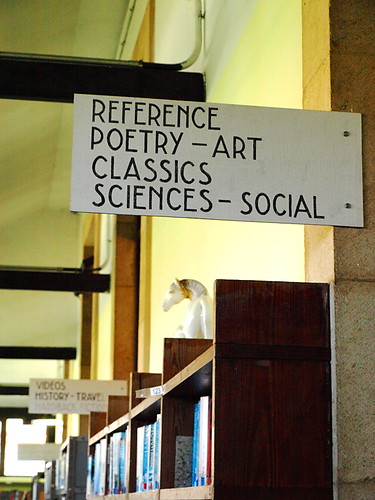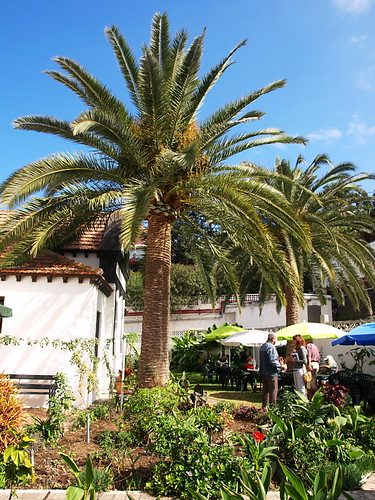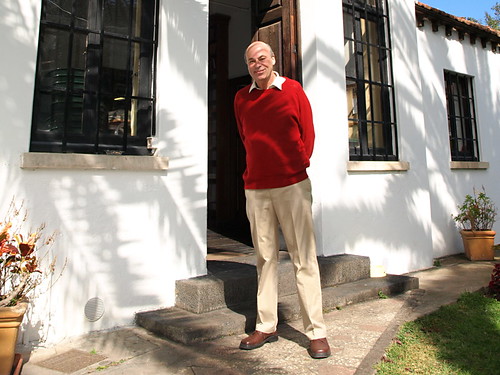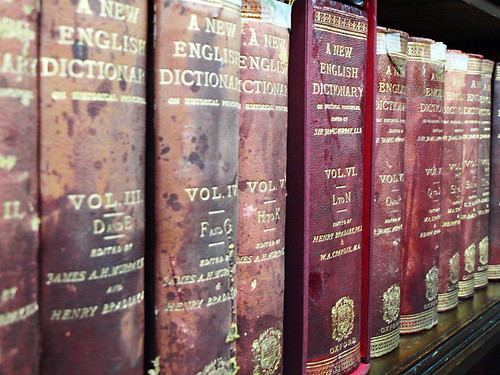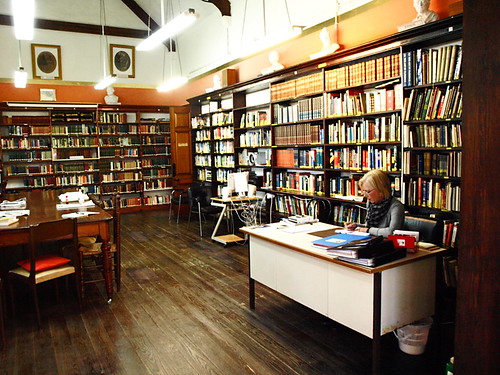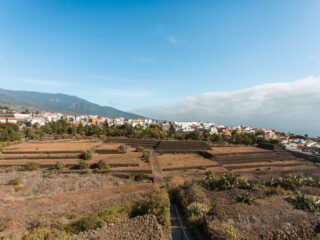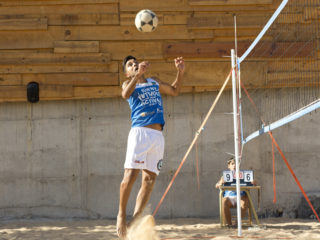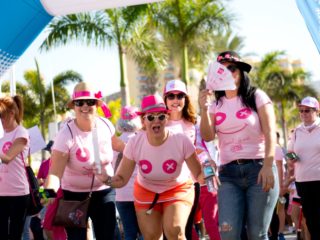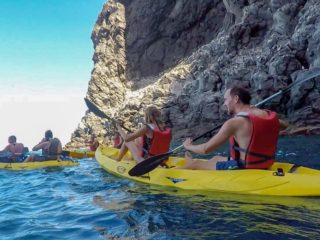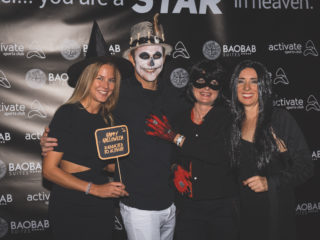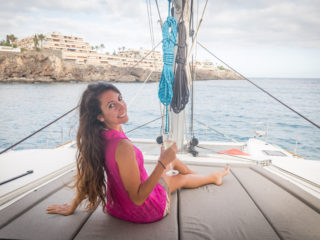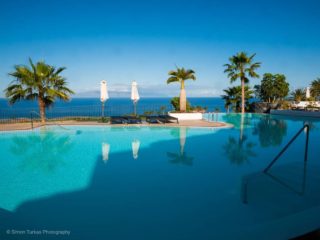“Those are our founding fathers“, says Ken pointing to the row of three portraits looking down on us from their elevated status above the bookcases of the reading room. “Pointing them out is what we begin our school tours with, if we can keep the children quiet long enough to hear us.”
Keep them quiet? In a library? Surely that’s a given. But there’s no wall of silence here in the English Library in Puerto de la Cruz. Where you might expect covert whispers there’s a quiet buzz of conversation and where you might look for bespectacled librarians despotically maintaining strict cataloguing systems, you’ll find sections that shift wholesale to make way for the ever-expanding DVD library, and a hand written note pinned to a bookcase that reads “Humour has been moved…”.
The English Library is not simply a repository for books written in the English language. For over a century it’s been a social hub for the British ex pat community for whom it has provided a source of knowledge, reading and entertainment along with a hefty helping of socialising, support and gossip exchange.
The First Edition
The first meeting of British residents of Puerto interested in the establishment of a library is recorded in ‘the English Library, A Brief History’ as being in 1900 when a Mrs Boreham, resident of the town, decided to put her habit of allowing friends and visitors to borrow books from her extensive personal collection onto a more formal footing. Ably assisted by the Parson, Reverend Humphries and the then Vice-Consul, Mr Peter Reid, the first order of books was placed, the library was named and the terms of Constitution were laid down. The following year Colonel Owen Peel Wethered pledged a donation of up to £500 including the site for a new library building. After some controversy, the proposition was accepted and work began on the building in Parque Taoro which today still houses the English Library.
I first visited the library six years ago when I was dropping off some magazines. At the time I was astonished at the existence of such an institution which appeared to occupy some parallel universe of England in the 1940s, staffed by genteel Brits who painstakingly hand wrote every title being borrowed into large ledgers while discussing the weather with their equally genteel customers. I felt as if I’d walked onto the set of a black and white Sunday matinee.
Revisiting the English Library to meet up with Ken Fisher who, until standing down at the recent AGM, has been President of the library for the past two years, some things hadn’t changed. Books were still being entered into ledgers by hand and the staff and clientele still appeared on the genteel side but there were noticeable differences. In the main reading room the large table was occupied by several people surfing the net on laptops, the bookcases on the long wall were filled with DVDs where previously video collections of TV sitcoms from the 1970s and 1980s had taken pride of place and outside, tables and chairs were busy with coffee drinkers enjoying the beautiful garden and warm sunshine.
“Is the WiFi free?” I ask Ken.
“Oh yes. In fact we have a computer support workshop now run by Peter and Mike.”
I tell Ken about my last and only visit.
“Well we only got a telephone installed two years ago when I got elected as President. I insisted,” he admits. Heady progress indeed.
The Latest Edition
Under Ken’s auspices, the English Library has taken a leap forward and newly elected President, Brian Arnold (above), is confident the library will continue to go in the right direction.
“We’re becoming a wider thinking library,” Brian tells me. “Catering to the needs of the English speaking community and finding ways to make their lives easier. We have good links with the British Consul for example and we’re a research resource for those ex-pats who over-winter in Puerto and don’t have access to WiFi or computers.”
Brian recognises that the days of being purely a lending library are behind them and that the future is bleak for the printed word.
“I believe John Lewis were selling one Kindle every 30 seconds over Christmas,” he says. “You can’t compete with that.”
Installing free WiFi and offering computer self help workshops is just one of the ways the English Library is adapting to better meet the needs of its customers. An ever growing DVD lending library is another. Unfortunately it means that the reference library is becoming less and less used but there are still some classics in there, including all volumes of the first edition Oxford English Dictionary, and the library is a valuable resource for researchers and anyone who has an interest in the history of Tenerife and of Puerto de la Cruz. They also sell novels at 50 cents and one Euro – perfect for holidaymakers who haven’t yet discovered the joys of Kindle.
Financed entirely through subscriptions and fund raising events, the English Library is run by a team of dedicated volunteers who manage not only to keep the book lending and cataloguing efficiently but also organise two coffee mornings a week (Saturdays and Wednesdays), nine or ten guest speaker events over the course of the year, a couple of hog roast garden parties and an annual dinner dance.
Finding myself engrossed in conversations with friends old and newly acquired, time slipped all too easily away at the library and I began to understand why so many people found themselves drawn to its smiling faces and familiarity. It’s like popping round to a friend’s house for coffee and a catch-up and I suspect it won’t be another six years before I return.
Epilogue
The English Library; Calle Irlanda, 5; Parque Taoro, Puerto de la Cruz; (0034) 922 383 098; open Monday & Friday 3pm-5.30pm, Wednesday & Saturday 10am-1pm. Annual membership €30, membership for those only resident for part of the year €12.
The next speaker event will be on Feb 23rd at 12 noon when guests will hear about the Churchill and Onassis visit to Puerto de la Cruz. Tickets €5 including “our world famous buffet” to quote Ken. Booking essential as all 60 places are invariably taken up.
Editor’s Note: Fresh from his revolutionising of the English Library, Ken Fisher will soon be gracing the pages of Tenerife Magazine with memories of life in Tenerife from 40 years ago. Watch this space, as they say.

